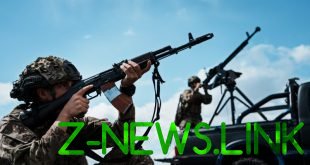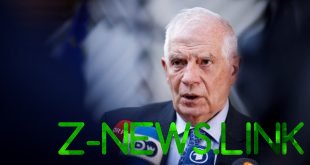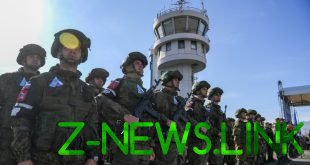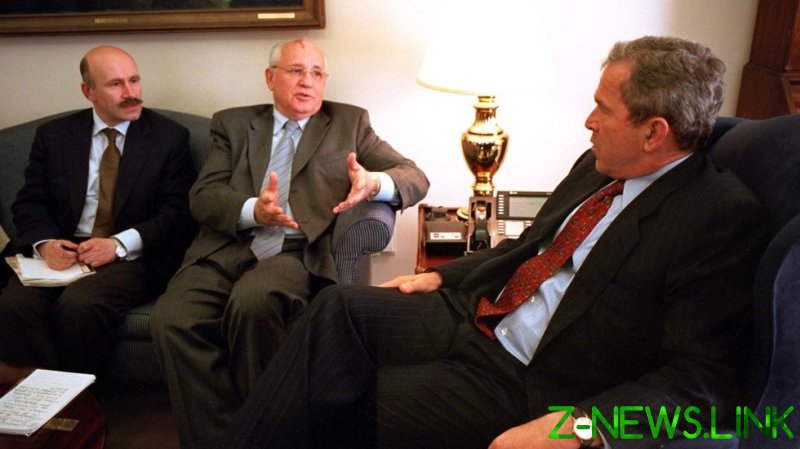
On December 25, 1991, Mikhail Gorbachev resigned as leader of the Soviet Union in a televised address, declaring the state itself to be dissolved, his office extinct, and all its powers conferred to Russian President Boris Yeltsin. Within minutes of his tectonic oratory’s conclusion, the Soviet hammer and sickle was lowered in Red Square for the very last time.
To mark the impending 30th anniversary of that momentous day, the National Security Archive has published a number of transcripts and “never-before-translated” documents that shed some light on US thinking in respect of the Soviet Union’s dissolution throughout the tumultuous preceding year. Somewhat surprisingly, given Washington spent the entire Cold War attempting to destabilize the USSR and precipitate its end, they show the White House was in fact committed to preserving the Union – at least in some form – and backing Gorbachev throughout 1991.
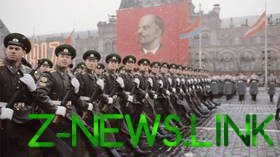
This desire, the documents reveal, was driven in part by fear of an outbreak of nationalistic violence that could dwarf the slaughter concurrently engulfing Yugoslavia, as the socialist republic’s constituent states battled for independence from Belgrade. This prospect was rendered all the graver given the presence of tactical nukes in 14 of the USSR’s 15 republics, with over 3,000 stationed in Belarus, Kazakhstan and Ukraine alone. In December 1991, then-Secretary of State James Baker warned of a coming civil war akin to Yugoslavia’s, “with nuclear weapons thrown in.”
Alarm over control of Soviet nuclear weapons were first raised after a group of Communist hardliners attempted to seize power in a violent coup in August 1991. They isolated Gorbachev in his residence in Crimea and created the State Emergency Committee (GKChP). While the effort failed in just three days, it was an extremely embarrassing episode that exposed Gorbachev’s weak position.
On September 5, national security adviser Brent Scowcroft sent a memo to the US President, warning of the need to preserve a central Union government, and for Yeltsin – whose popularity and influence increased dramatically following the failed coup – to have a constructive relationship with the Soviet leader.
Eight days later, Baker was in Moscow to attend a historic Conference on Security and Cooperation in Europe event, and met with senior Soviet politician Alexander Yakovlev. He expressed support for preserving the Union, while warning of the need to act “decisively” and quickly conclude political and economic agreements with Soviet republic leaders, in order to facilitate the creation of the Union of Sovereign States, a successor to the USSR. Prophetically, he forecast that if this wasn’t achieved within “two or three months,” it would mean the USSR’s “irreversible disintegration.”
On October 11, a Soviet State Council meeting was convened in Moscow, the minutes suggesting that the Union of Sovereign States was on the verge of becoming a reality. The assembled Soviet republic chiefs discussed in some detail finalizing the collective’s founding treaty and concluding a wide-ranging, liberalizing economic agreement to underpin it. In the end, however, the project didn’t materialize.
At dinner with Bush and King Juan Carlos of Spain in Madrid on October 29, the Soviet leader bemoaned the treaty’s failure, stating he believed that “in his soul [Yeltsin] is sincerely in favor of the Union,” but “people [and] forces” in the USSR were trying to “put a wedge” between the pair “all the time.”
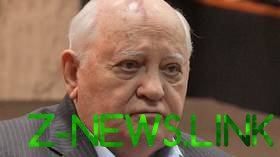
In response, Bush hailed “the gigantic task” before Gorbachev, declaring it “a stunning, breathtaking drama,” about which “we are holding our breath as we watch it unfold, and we wish you luck.” Carlos went even further, stating that without the Union, “there will be no important pillar of stability in Europe and in the world,” leaving “a dangerous vacuum.”
As it was, on December 8, Yeltsin phoned the White House to inform his US counterpart of an “extraordinary” development – he, along with the leaders of Belarus and Ukraine, had signed a joint agreement just minutes earlier to break away decisively and finally from the USSR. In laying out the terms of their independence, he stressed that Gorbachev as yet “does not know these results.” An extremely reserved – and no doubt mortified – Bush largely responded monosyllabically to the Russian’s assorted seismic disclosures.
These documents give rise to an enormous number of ‘what if’ scenarios regarding how differently the subsequent three decades would’ve played out, and what the state of Western relations with Moscow would be today, if Gorbachev’s aspirations had come to fruition. However, such speculation is rather moot, for meddling within the Soviet sphere by US intelligence front the National Endowment for Democracy (NED) ever since its launch in 1983 made the USSR’s collapse a fait accompli.
In September 1991, the Washington Post hailed a new era of “spyless coups” and “overt operations,” in which a number of US government initiatives “have been doing in public what the CIA used to do in private.” The NED was said to be the “sugar daddy” in this wider push, “providing money and moral support for pro-democracy groups, training resistance fighters, working to subvert communist rule.”
It documented at length how the organization’s “overt operatives” were active inside the Soviet Union and had been to date “immensely successful,” for example funding trade unions, the liberal “Interregional Group” in the Congress of Peoples Deputies, an activist foundation, and the Ukrainian independence Rukh, among “many other projects.” Rukh’s campainging was instrumental to the holding of a referendum in December that year, in which 92.3% voted to leave the USSR.
Central to these destabilizing efforts was NED grandee Allen Weinstein, who the Post anointed “the dean of the new overt operatives,” engaged in “global meddling” on a grand scale.His work in the country dated back to 1980, “when he joined Soviet dissidents in organizing a citizens’ committee to monitor the Helsinki Accords on Human Rights.” Quickly becoming connected with a “network of pro-democracy activists” in the region, “soon he was sponsoring conferences for dissidents, arranging visits for them to the US and otherwise making trouble.”
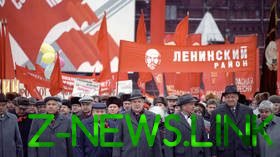
Tantalizingly, the outlet records how Yeltsin and his aides were “drawn into this transatlantic hospitality suite,” attending several conferences arranged by Weinstein, “including one on environmental problems held in Moscow in early August.” Mere days later, the hardliners launched their ill-fated putsch, so “naturally enough” the President’s coterie “began sending faxes to their friend, Weinstein,” apprising him of the Red Army tanks flooding the Russian capital, and “trying to rally support for their resistance.”
Their relationship allowedYeltsin to contact Bush directly – a call to which The Post referred as “arguably the most sensitive and delicate in the history of the Cold War” – and prompt him to publicize what was erupting in a televised address. The President lambasted the coup as a “misguided and illegitimate effort,” and froze US aid to the Soviet Union until it was reversed.
It’s eminently arguable that this dealt a lethal blow to the plotters’ intentions, greatly emboldening Yeltsin, “the Kremlin rebel who was seeking to dismantle the Soviet empire and destroy the Communist Party,” and making his ascendance – along with the USSR’s resultant “irreversible disintegration” – all but inevitable. One can only wonder whether Bush had any idea that his intervention would help to bring about precisely what he and his administration so feared, and had determinedly battled against for so long.
The statements, views and opinions expressed in this column are solely those of the author and do not necessarily represent those of RT.
© 2021, paradox. All rights reserved.



